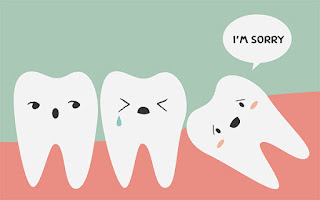 You never know when you will need an emergency dentist. A dental emergency, as with any health emergency can strike at any time and without warning. For some people, they will feel a moderate level of pain that all of a sudden escalates into unbearable tooth pain. For others, they need an emergency dentist after being in an accident. Regardless of when or why you need a dentist, we are available to help.
You never know when you will need an emergency dentist. A dental emergency, as with any health emergency can strike at any time and without warning. For some people, they will feel a moderate level of pain that all of a sudden escalates into unbearable tooth pain. For others, they need an emergency dentist after being in an accident. Regardless of when or why you need a dentist, we are available to help.
Two common reasons for needing an emergency dentist are injuring a tooth while playing sports or getting into an accident. According to the American Dental Association, the majority of adult tooth injuries are due to playing sports. Most adults don't have the time to play in an organized league so the likelihood of your tooth getting injured during a neighborhood game of basketball is actually fairly high. You can reduce your risk by keeping your teeth healthy in the first place or wearing a mouth guard while you play.
If your tooth was injured in a car accident or on the job, there typically isn't much you can do to prevent it. Scheduling regular dental exams and teeth cleanings will help your teeth to be healthy enough to withstand damage but there is no guarantee that your tooth won't become cracked, chipped, or even fall out during an accident. If this happens to you after business hours or on the weekend, you need to call a 24-hour dentist.
Many people make the mistake of thinking that the emergency room staff can treat tooth injuries. They can't and don't because they are trained in how to treat the rest of your body, but not in how to treat your teeth. This is why you need to visit a doctor of dentistry, not just a medical doctor. In fact, if you go to the ER, they will direct you to an emergency dentist instead.As a 24-hour dentist, you can call us at any time day or night.
We can provide the immediate relief you need when the pain becomes unbearable or restore your tooth after an accident. If your tooth has fallen out it is extremely important to see a dentist right away because we may be able to save it. Waiting until the morning is not an option when you are trying to do so. Instead, find your tooth, rinse it off and put it into a glass of milk. Once you get to our office, we will see if the tooth can be saved. If not, we will make other recommendations for replacing it such as installing a dental bridge or dental implants.
Likewise, if your tooth is in major pain, you can call our dentist office. We will examine your mouth and determine the reason you are experiencing pain before making treatment recommendations. By restoring your damaged tooth or treating an infection, we can correct your dental problems and help you to feel better in no time.
 In our
In our  Before you get
Before you get 
 Many patients are unsure if they need to see a
Many patients are unsure if they need to see a  If you would like to improve your teeth, our
If you would like to improve your teeth, our  If you are wearing dentures,
If you are wearing dentures,